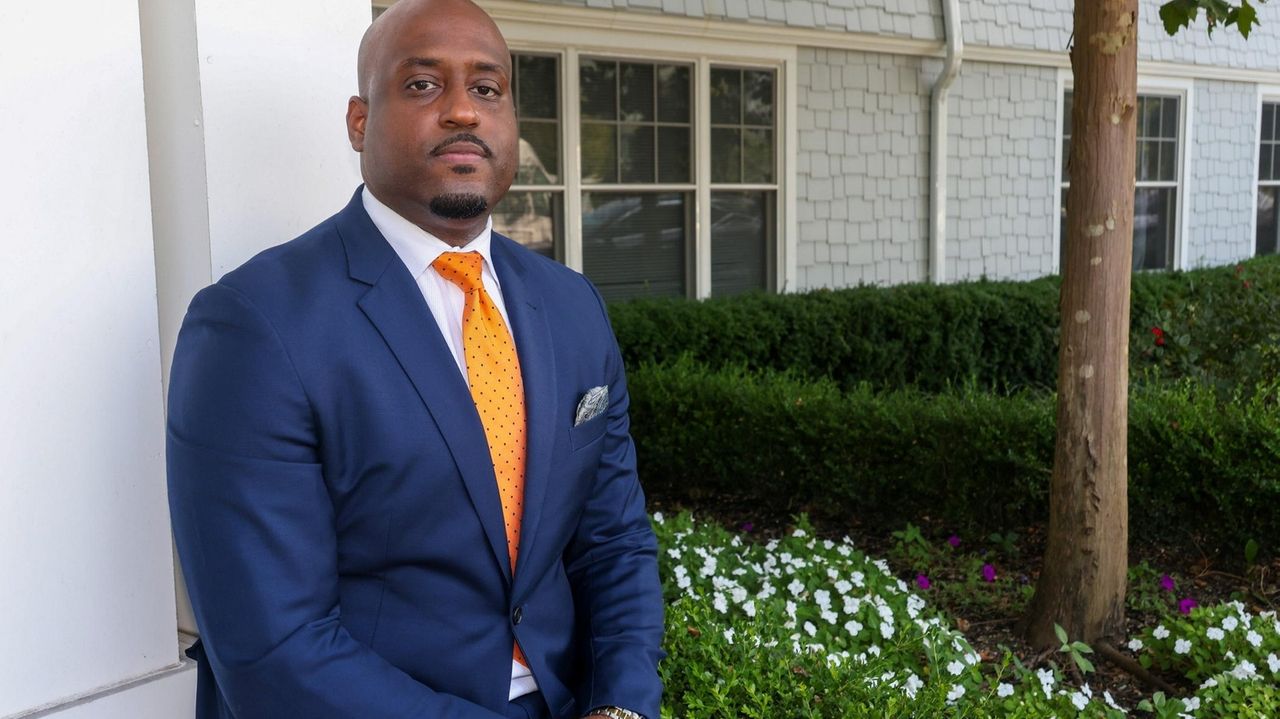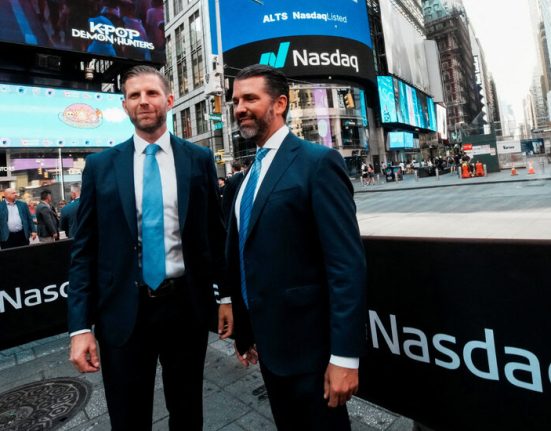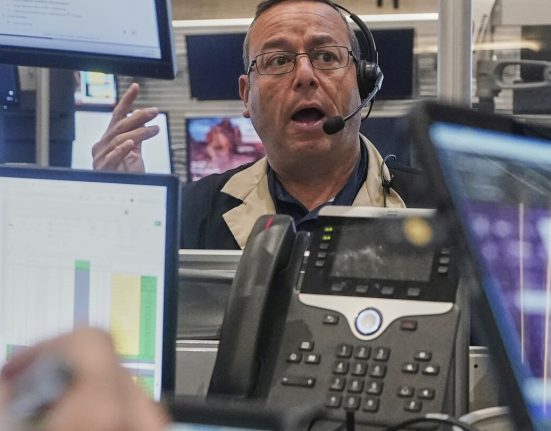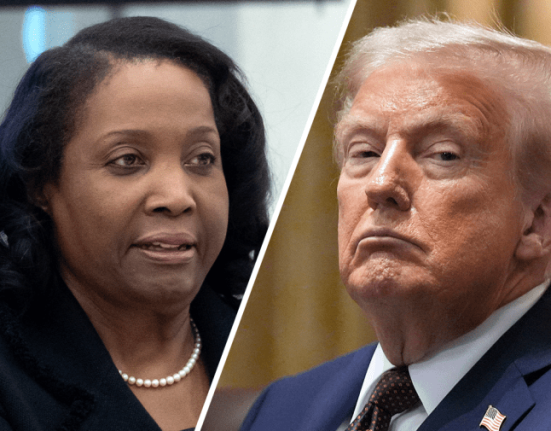A new Trump executive order would potentially open the door for millions of employees saving for retirement — including on Long Island — to invest their funds in alternative plans, a move that local experts said could benefit younger and wealthier investors but pose risks for those nearing retirement.
In an executive order issued Thursday, President Donald Trump said he wanted to democratize access for Americans by allowing 401(k)s to invest in alternative assets, such as private equity, real estate and cryptocurrencies. The White House said the expansion will allow more Americans to take advantage of further investment opportunities through their employer’s retirement plans.
Experts acknowledge that the move will open a wider range of options for Americans curating their retirement portfolios, including riskier opportunities that may have a higher payoff, but critics say that risk may not be worth it for less experienced investors and individuals nearing retirement age.

Ed Slott, a Rockville Centre-based retirement expert, seen here in March 2021, said, “Usually, it’s wealthier investors who are willing to take more risks and willing to lose money because they can afford to.” Credit: Kendall Rodriguez
“Most investors are probably not savvy enough to understand private investments,” said Ed Slott, a Rockville Centre-based retirement expert and founder of IRAHelp.com, which offers retirement account expertise and analysis. “Usually, it’s wealthier investors who are willing to take more risks and willing to lose money because they can afford to.”
WHAT NEWSDAY FOUND
- A new Trump executive order would potentially open the door for millions of employees saving for retirement — including on Long Island — to invest their funds in alternative plan.
- The White House said the order creates opportunity for Americans to make more lucrative investments through their employer’s retirement plans.
- Experts say the move will open a wider range of options for Americans curating their retirement portfolios, but might be riskier for less experienced investors and individuals nearing retirement age.
Others experts, however, emphasized the benefits that the expanded investment choices could offer especially to younger Americans saving for retirement.
“This is going to open up a ton more access for individual investors and it’s obviously going to be a net positive for crypto,” said Andrew Rocco, stock strategist at Chicago-based Zacks Investment Research.
Younger Americans might benefit
Younger Americans with more time to absorb potential losses could benefit from investing in riskier portfolios, experts said.
Millennials especially, who might be behind on retirement or fed up with inflation, might see the opportunity to invest in cryptocurrencies as an “escape hatch,” Rocco said.
For younger Long Islanders struggling to keep up with a “quickly evolving financial landscape,” the expanded options could “catapult us back into the financial trajectory that our parents and grandparents were in,” said Dan Lloyd, founder and president of Minority Millennials, a nonprofit that aims to represent young minority groups in Long Island policies.
Amityville resident and financial adviser Jeffrey St. Simon, 35, said he might adjust his retirement strategy as the executive order comes into play. But he pointed out that even younger workers run the risk of an investment falling through as they approach retirement age.
“I’m not going to invest in a private company in my retirement account unless I really believe in it,” he said.
Americans held $12.2 trillion in employer-provided retirement plans as of late March, of which $8.7 trillion was held in traditional 401(k) plans, according to quarterly market data from the Investment Company Institute, a trade association for regulated investment funds worldwide.
Caution urged for those near retirement
Slott said while riskier investments might make sense for younger 401(k) holders who have time to make up for any losses, older Islanders nearing retirement should be very cautious about pursuing private equity investments.
Unlike publicly traded stocks or mutual funds, managers of alternative assets often put time restrictions on when investors can cash out. Also, private companies do not publicly provide financials the way publicly traded companies do, he said.
“Private equity is not as regulated, it’s not transparent,” Slott said. “You don’t have the liquidity and can’t get your money out of these things that fast. It’s not like a publicly traded stock where you say, ‘Sell it and give me my cash.”
Rocco similarly said that older employees closer to retirement, such as individuals in their 50s, should be more risk averse than younger demographics.
Still, representatives of Long Island’s business community said the order ultimately gives more choice to local employers.
The opportunity provides “more flexibility to employers and their workforce when investing their money,” said Matt Cohen, president and CEO of the Long Island Association business group, although workers “should be sure to consult with their portfolio manager to fully understand the benefits and risks of any financial decision.”
No immediate impact
The order will not have an immediate impact on American retirement portfolios or how employers invest in 401(k)s. It directs federal agencies to adjust regulations to accommodate the alternative investment options, an initiative that could take months or longer.
And, it will take time for the financial landscape to catch up, said Craig Rudes, a partner at Long Island Blockchain, a technical consulting firm for blockchain technology.
“Crypto as an economic product is only just beginning,” he said.

Mitchell O. Goldberg is president of Melville-based financial advisory firm ClientFirst Strategy Inc. Credit: Newsday/Howard Schnapp
It’s unlikely that retirement plan companies and employers will be champing at the bit to offer access to private equity investments, given longtime regulations protecting retirement savers, said Mitchell O. Goldberg, president of Melville-based financial advisory firm ClientFirst Strategy Inc.
Federal legislation currently obligates traditional retirement fund companies, like Fidelity or Vanguard, to “diversify the plan’s investments in order to minimize the risk of large losses,” according to the Department of Labor.
“To me, private equity and crypto is for the more sophisticated investor that understands risk and can afford losses on their investments,” Goldberg said.
With AP







